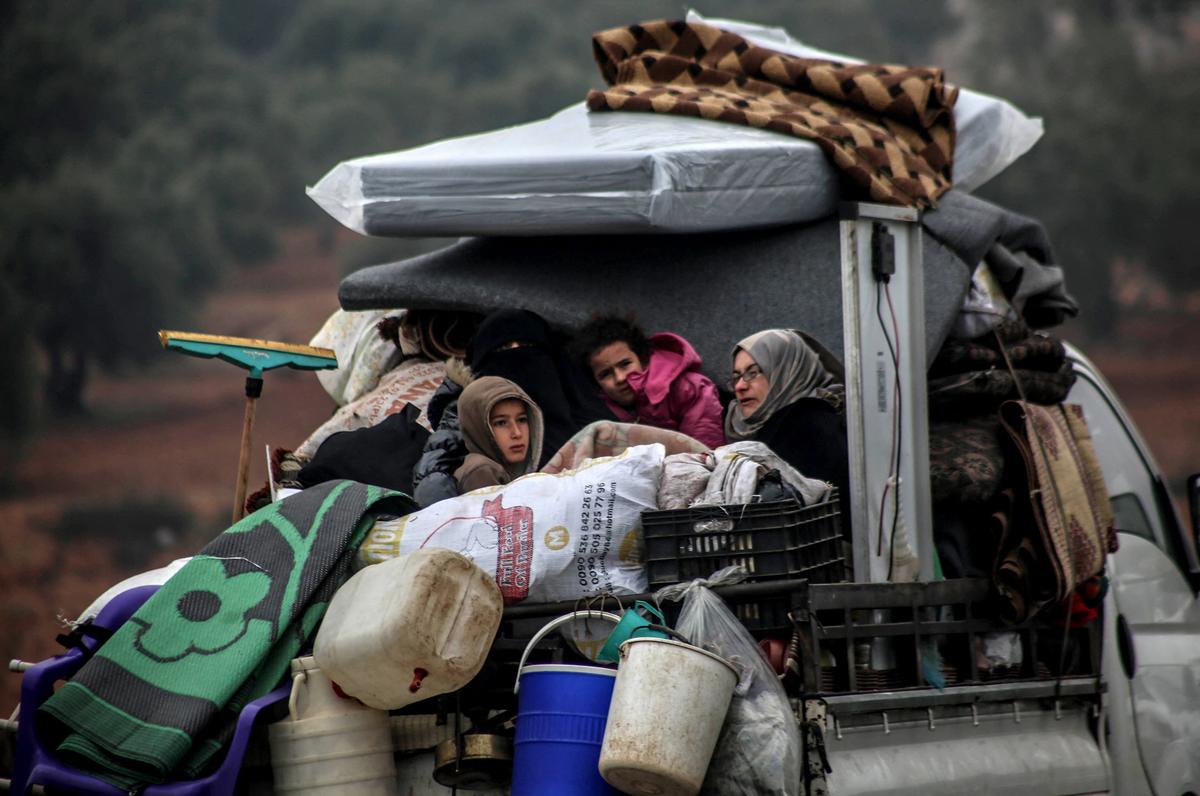Pakistan: UNHCR launches winter aid package for displaced people in camps
Pakistan: UNHCR launches winter aid package for displaced people in camps
As temperatures drop in north-west Pakistan, UNHCR has begun this week the distribution of additional relief supplies to internally displaced people (IDPs) living in camps. This aid will help IDPs to cope with the hardships of winter. The first phase of the winterization drive started yesterday (Monday) in Jalozai camp, near Peshawar in the North West Frontier Province (NWFP), and will continue in eight camps in the lead up to Eid on 28 November. Some 85,000 people (13,600 families) will benefit from this winterisation programme.
Each family will receive six blankets, four sleeping mats, and two plastic sheets for warmth and insulation, in addition to other relief supplies received when they initially registered in the camp. More than 82,000 blankets, 37,000 plastic sheets and some 55,000 sleeping mats will be distributed this week in several camps including in Jalozai, Jalala, Benazir complex, Wali Kandow, and Palosa in the North West Frontier Province.
Standard canvas tents are also being replaced with all-weather tents or being reinforced with extra insulation. Replacement of tents is continuing, with more than 3,000 tents replaced to date in the Jalozai camp. Other more recent camps like Wali Kandaw, in the Lower Dir district, were established with all-weather tents. More than 12,000 residents of the two Kacha Ghari camps will receive the winter packages and new all-weather tents when they relocate to Jalozai next week after Eid. A second round of winter assistance will follow including woollen shawls, solar lamps and fire wood.
There are currently more than 100,000 people residing in 10 camps of NWFP. Jalozai is the largest, accommodating more than 80,000 people, primarily from Bajaur, Khyber and Mohmand agencies of the Federally Administered Tribal Areas (FATA). Some residents have now lived at Jalozai camp for a year when they first fled fighting in Bajaur and Mohmand. About 30,000 people from Bajaur and Bara in Khyber Agency have registered at the camp since October.
Up to 900,000 people from the northern areas of FATA and NWFP could still be displaced and staying with host communities, according to overall relief distribution figures. Movement back and forth between displacement and return areas has made it difficult to have more precise estimate on the remaining IDPs. In partnership with other agencies, UNHCR is currently carrying out a re-screening process at seven humanitarian hubs in five districts of NWFP to better understand the scope and needs of the remaining displaced population.
For humanitarian agencies such as UNHCR, there is a very complex and mixed picture of displacement in north-west Pakistan, including care and maintenance for the longer term displaced people, return and reintegration programmes and emergency response for new displacements such as those from South Waziristan. For this latter group, UNHCR is continuing to distribute tents to people in Dera Ismail Khan and Tank who are staying with the host families to alleviate overcrowding. More than 14,000 family tents have been given out so far helping more than 100,000 people. In addition, relief items like sleeping mats, blankets, quilts, jerry cans and kitchen sets have been distributed to 275,000 people in more than 37,000 families.
More than 268,000 displaced people (36,700 families) from South Waziristan have now been verified by the National Database and Registration Authority (NADRA), but fewer numbers of new families continue to be registered at three remaining centres in Dera Ismail Khan and one in Tank district of NWFP. Desks remain open to facilitate appeals of those people not verified by NADRA, including those having problems with the national ID cards.












